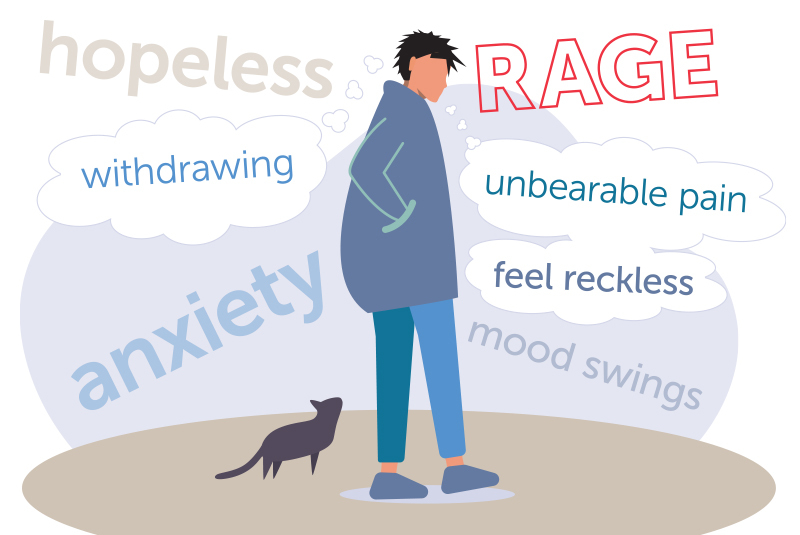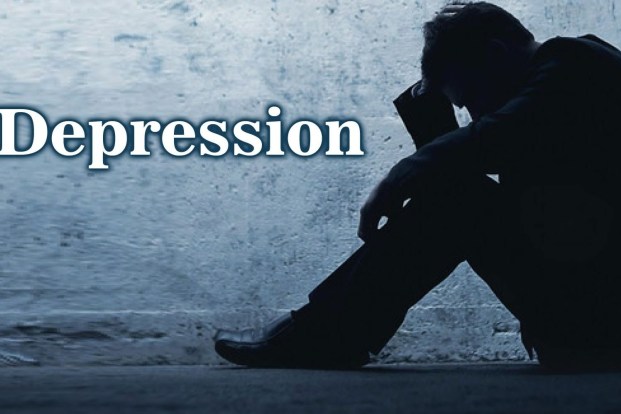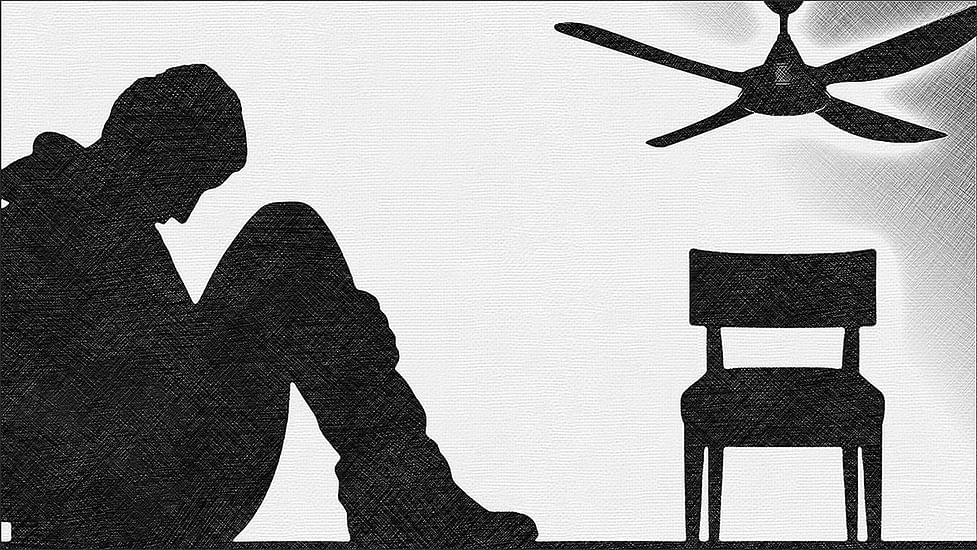When someone talks about suicide, a lot of people feel uncomfortable. They might not know how to react, or they could be scared that the person is thinking about harming themselves. Suicide is a complex issue and it’s important to talk about it openly so that people can understand it better. In this blog post, we will discuss all aspects of suicide: what it is, who is at risk, and how to get help. We hope that by reading this post, you will have a better understanding of suicidal thoughts and be able to support loved ones who might be struggling.
Contents
What Are Suicidal Thoughts?
 Suicidal Thoughts are thoughts about harming oneself or taking one’s own life. Suicidal thoughts are a symptom of depression, bipolar disorder, and other mental health disorders. Suicidal thoughts are also a sign that something is wrong and that someone needs help.
Suicidal Thoughts are thoughts about harming oneself or taking one’s own life. Suicidal thoughts are a symptom of depression, bipolar disorder, and other mental health disorders. Suicidal thoughts are also a sign that something is wrong and that someone needs help.
Sometimes these thoughts can feel overwhelming and scary. But it is important to remember that most people who think about suicide do not actually commit suicide.
Suicidal thoughts are a symptom of an underlying mental health condition. These are such as depression or anxiety disorders. Suicidal thoughts may also be triggered by stress due to difficult life circumstances like the loss of a loved one, financial problems, or bullying.
People who have suicidal thoughts often feel like they cannot cope with their current situation and overlook other options, so it is important to recognize the signs of someone who may be considering suicide. If you or a loved one are struggling with mental health issues, contact your doctor right away for help. They can connect you to resources that can support your healing journey.
Signs of Suicidal Thoughts

There are many signs of suicidal thoughts. If you or a loved one are experiencing any of the following, seek help right away:
Talking About Dying
Sometimes someone may be having suicidal thoughts if they talk about wanting to die or even saying that they want to commit suicide. Sometimes people will joke about suicide, and sometimes the person who wants to end their life is not using threatening language. For example, a person may say things like “I wish I wasn’t here,” or “Everyone would be better off without me.”
Talking About Having No Reason To Live
A person with suicidal thoughts may feel hopeless and have no reason for living. This can manifest itself in different ways including talking about feeling worthless, useless, or unloved. A person experiencing these feelings might say something like “Nothing matters anyway” or “It’s all pointless”. They might go on to explain why nothing matters and how everything is against them.
Making Plans or Statements About Suicide
 A person who is suicidal may start to make plans for how they would commit suicide, including obtaining the means to do so. They might also talk about wanting to hurt themselves or leave clues as to their intentions. For example, someone might say “I’m going to take a bunch of pills tonight” or “I’m going to jump off that bridge.”
A person who is suicidal may start to make plans for how they would commit suicide, including obtaining the means to do so. They might also talk about wanting to hurt themselves or leave clues as to their intentions. For example, someone might say “I’m going to take a bunch of pills tonight” or “I’m going to jump off that bridge.”
Changing Behavior
If someone has been relatively stable but starts behaving differently, it could be a sign that something isn’t right. A sudden change in mood can be a warning sign, especially if the person becomes more withdrawn, irritable, or angry than usual. Additionally, some people may become more reckless or engage in self-harm behaviors like cutting.
Seeking Out Death
People who are suicidal may start to seek out death in different ways. They might visit or call people who have recently died, search for information on how to commit suicide, or write goodbye letters. There can be many reasons for these behaviors. So it is important to speak up if you notice someone doing any of the above.
Giving Away Belongings
A person who wants to die may give away personal belongings or start settling their affairs as if they were planning on dying soon. They might write a will and make other legal arrangements such as power of attorney or making funeral plans in advance. These are all warning signs that something isn’t right and should not be ignored.
Withdrawing From Others
 Someone who has suicidal thoughts may withdraw from friends, family members, social activities, etc., in an effort to avoid dealing with others’ reactions when they do commit suicide (or attempt to). It’s common for people to have depression due to suicidal thoughts, but sometimes they can be the first sign that something isn’t right.
Someone who has suicidal thoughts may withdraw from friends, family members, social activities, etc., in an effort to avoid dealing with others’ reactions when they do commit suicide (or attempt to). It’s common for people to have depression due to suicidal thoughts, but sometimes they can be the first sign that something isn’t right.
Losing of Interest
A person with suicidal thoughts may lose interest in hobbies or things that used to bring them joy. They may also stop taking care of themselves by not eating properly and neglecting personal hygiene practices like bathing or brushing their teeth. Someone who is experiencing this type of loss of interest should seek help for it so that they don’t end up feeling worse later on down the road when things get too bad and there is no longer any hope left inside them at all anymore either.
Causes of Suicidal Thoughts

There are many causes of suicidal thoughts. Some of the reasons for suicidal thoughts:
Mental Illness
Sometimes there can be any reason for a mental illness that can lead to suicidal thoughts. Depression, bipolar disorder, and schizophrenia are some of the most common mental illnesses that can lead to suicide. There can be environmental factors, such as a traumatic experience, that trigger the mental illness.
Hormones
During puberty and other times of hormonal changes, some people can experience suicidal thoughts. This is more common in females than males. These thoughts are also more likely to happen around menstruation.
Alcohol and Drugs
 Drugs such as alcohol, cocaine, and amphetamines can lead to suicidal thoughts. The use of these drugs can increase the risk of suicide by making a person paranoid or depressed. These drugs may even decrease the chance that someone will act on their suicidal thoughts because they decrease motor skills and coordination. Some people who attempt suicide under the influence of drugs die accidentally instead because they cannot perform the act correctly due to their lack of coordination.
Drugs such as alcohol, cocaine, and amphetamines can lead to suicidal thoughts. The use of these drugs can increase the risk of suicide by making a person paranoid or depressed. These drugs may even decrease the chance that someone will act on their suicidal thoughts because they decrease motor skills and coordination. Some people who attempt suicide under the influence of drugs die accidentally instead because they cannot perform the act correctly due to their lack of coordination.
Stressful Events In Life
Stressful events in life are another cause of suicidal thoughts for both teenagers and adults alike (although it is less common among adolescents). Situations like divorce, losing a loved one, school problems, failing a test, or being dumped by someone are all stressful situations that can lead to suicidal thoughts.
Family History
Sometimes suicidal thoughts can be passed down from generation to generation. If there is a family history of suicide you should talk with your parents about it before going through any major changes in life (like puberty) as it could increase the risk for suicidal thoughts during this time and well into adulthood. Sometimes there are other family members who have survived suicide attempts which should also be taken into consideration when looking at your own potential risk for attempting suicide.
Problems With Friends and Family Members
 There are many problems that can occur in the lives of teenagers, such as peer pressure or bullying. These things may lead to suicidal thoughts because they can make someone feel like an outcast from society or unloved by their friends and family members. These feelings often result in depression which then leads to thinking about ending one’s life due to this overwhelming feeling of being alone with no hope left for them anymore (i.e., hopelessness).
There are many problems that can occur in the lives of teenagers, such as peer pressure or bullying. These things may lead to suicidal thoughts because they can make someone feel like an outcast from society or unloved by their friends and family members. These feelings often result in depression which then leads to thinking about ending one’s life due to this overwhelming feeling of being alone with no hope left for them anymore (i.e., hopelessness).
Relationship Problems
Sometimes there are problems in a relationship that can lead to suicidal thoughts. There can be cheating, abuse, or even just a lack of communication that may cause these thoughts. It may be that the person is feeling neglected or unimportant in the relationship which can lead to a sense of worthlessness.
Physical Illnesses
There are some physical illnesses that can also lead to suicidal thoughts. Conditions like cancer, AIDS, and heart disease can be very difficult to cope with both physically and emotionally. When someone is experiencing one or more of these life-threatening illnesses they may feel like suicide is their only way out.
Bullying
Sometimes there is a person who is constantly being bullied which can lead to suicidal thoughts. The feeling of helplessness and not being able to do anything about the bullying can be too much for some people, leading them to want to take their own life. It can also be difficult to tell someone else what is going on because they may not believe you or make fun of you even more. It’s important that anyone who feels like this speaks up before it gets out of control and becomes too late for them.
Rejection
 Suicidal thoughts can sometimes occur when someone experiences rejection. This could be from a romantic partner, family member, or friend. Feeling like you are not good enough or loved creates a very large hole in one’s heart that may seem impossible to fill.
Suicidal thoughts can sometimes occur when someone experiences rejection. This could be from a romantic partner, family member, or friend. Feeling like you are not good enough or loved creates a very large hole in one’s heart that may seem impossible to fill.
Loneliness
Many times suicidal thoughts come as a result of feeling lonely. This loneliness could be caused by moving away from home, attending a new school, or just have lost touch with old friends. When someone feels alone it can be hard to find motivation in life because they feel like no one cares. They may feel there’s nobody around who would understand how they are feeling.
Dealing With Suicidal Thoughts

There are many ways to deal with suicidal thoughts. Some of these are:
Talking To Friend
Sometimes there is nothing more helpful than talking to a friend. Talking openly and honestly can help ease suicidal thoughts. There can be a feeling of relief after sharing these thoughts with someone else. Sometimes it is helpful to have someone to talk to who will understand and support you. It can also be helpful to talk about suicide with someone who has been through it.
Reaching Out To Professional
 If you don’t feel like talking to a friend, or if the thoughts are too intense, reaching out to a professional is a good option. Licensed therapists are trained to help people deal with suicidal thoughts and feelings. They can provide support and guidance on how to best deal with these thoughts. There are also hotlines available that offer free and confidential support 24 hours a day.
If you don’t feel like talking to a friend, or if the thoughts are too intense, reaching out to a professional is a good option. Licensed therapists are trained to help people deal with suicidal thoughts and feelings. They can provide support and guidance on how to best deal with these thoughts. There are also hotlines available that offer free and confidential support 24 hours a day.
Practicing Mindfulness
Mindfulness is a type of meditation that focuses on being aware of what you are feeling and thinking. It can help you to be present in the moment and focus on your thoughts without judgment. Practicing mindfulness can reduce stress, anxiety, and depression. This can help with suicidal thoughts as well since it helps to slow down racing thoughts and be more aware of your emotions.
Writing It Out
Sometimes there are thoughts or feelings that are too difficult to talk about. In these cases, writing them down can be helpful. This can give you a way to express what you’re feeling without having to speak aloud. It can also be a way to release some of the tension and stress associated with suicidal thoughts. It can also be a way to communicate with others without having to talk about it.
Finding Help For Mental Illness
 This may mean getting help for depression or anxiety. Talking about these things with a therapist can be helpful in dealing with suicidal thoughts and feelings. It is also important to get treatment for any mental illnesses that you have, as this will make the experience of suicidal thoughts less intense and easier to deal with.
This may mean getting help for depression or anxiety. Talking about these things with a therapist can be helpful in dealing with suicidal thoughts and feelings. It is also important to get treatment for any mental illnesses that you have, as this will make the experience of suicidal thoughts less intense and easier to deal with.
Taking Care Of Yourself
Sometimes taking care of yourself can help ease some of the stress associated with suicide. Taking time off work or school is one option, but not always possible due to financial reasons or other circumstances. If this isn’t an option, there are still ways that you can take some time for yourself by doing something fun or relaxing. This can help to soothe the mind and body, making it easier to deal with suicidal thoughts.
Doing Something You Love
Sometimes there is nothing better than doing something you love. It can provide a sense of satisfaction and purpose in life. This can help ease suicidal thoughts by giving them less power over your life.
Taking Break From Social Media
It’s easy to get sucked into the world of social media, which can make it difficult to focus on real-life issues like suicide. Taking some time away from these sites will give you an opportunity to reflect on what’s going on in your own life without all the distractions that come with them. It may also be helpful for people who are struggling with depression or anxiety because they don’t have access to those things online anymore, which makes coping much easier.
Trying New Things
Sometimes trying new things is all it takes to ease suicidal thoughts. Going out with friends, taking a class at the gym, or doing something you’ve never done before can be helpful. Sometimes all it takes is a change of scenery to ease suicidal thoughts.
Exercising
 Exercise can be helpful in many ways, including reducing stress and anxiety which may lead to suicidal thoughts or feelings. It also releases endorphins into the brain, making you feel better about yourself. This can help ease some of the negative symptoms associated with depression or anxiety that may be contributing factors to suicide ideation. Exercise doesn’t have to mean going out and running marathons every day; even walking around your block once per week will do wonders.
Exercise can be helpful in many ways, including reducing stress and anxiety which may lead to suicidal thoughts or feelings. It also releases endorphins into the brain, making you feel better about yourself. This can help ease some of the negative symptoms associated with depression or anxiety that may be contributing factors to suicide ideation. Exercise doesn’t have to mean going out and running marathons every day; even walking around your block once per week will do wonders.
Conclusion
Suicidal thoughts are not pleasant to think about or talk about. However, it is important that we do both of those things if we want to beat this terrible epidemic. We need to know all that we can about suicide and how to prevent it. Only then can we hope to save lives. You can also contact us if you are in a suicidal crisis.
We can provide you with support and figure out ways to help you deal with your suicidal thoughts. We are here for you 24/hours a day, seven days a week.
A Word From Therapy Mantra
Your mental health — Your psychological, emotional, and social well-being — has an impact on every aspect of your life. Positive mental health essentially allows you to effectively deal with life’s everyday challenges.
At TherapyMantra, we have a team of therapists who provide affordable online therapy to assist you with issues such as depression, anxiety, stress, workplace Issues, addiction, relationship, OCD, LGBTQ, and PTSD. You can book a free therapy or download our free Android or iOS app.


